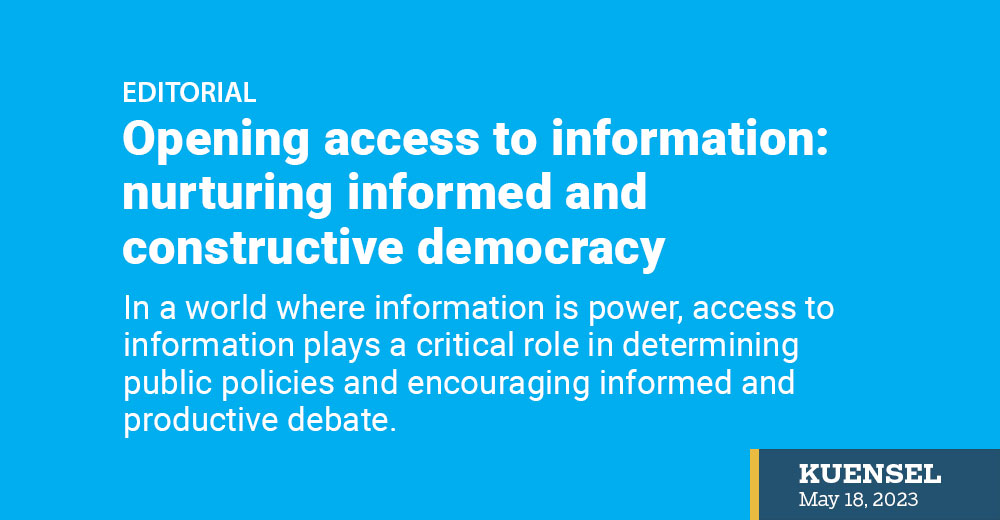In a world where information is power, access to information plays a critical role in determining public policies and encouraging informed and productive debate. Bhutan’s recent drop in press freedom rankings is cause for concern, as it demonstrates the growing limits on information availability and their negative influence on democratic processes. To build a flourishing democracy, citizens must have access to information that allows them to participate actively and responsibly in decision-making.
Access to information is critical for encouraging transparency and accountability in society. Citizens who have unfettered access to official information can hold government agencies and public figures accountable for their conduct. This builds trust between the government and citizens and promotes responsible governance. By expanding access to information, we can also enhance our democratic institutions and strengthen our commitment to good governance.
Informed decision-making is essential to democracy. Citizens who have access to a wealth of information can make well-informed decisions that reflect their interests and values. Informed citizens may critically examine government policies, programmes, and actions, resulting in more effective and desirable consequences for society as a whole. We should not inhibiting people’s ability to contribute effectively to public dialogue and policymaking by restricting information access.
The presence of robust and productive debates is an essential component of a functioning democracy. And, we can develop an environment friendly to varied opinions and ideas through increasing information availability. Citizens who have access to knowledge can participate in educated conversations that challenge current narratives, examine assumptions, and eventually contribute to policy evolution. Informed and productive conversations foster creativity, highlight potential flaws, and result in more balanced, inclusive policies that benefit all elements of society.
Open information access strengthens public institutions by fostering a culture of transparency and professionalism. When officials and civil servants are allowed to share necessary information, they can effectively carry out their duties and serve as reliable sources for the media. By providing a formalized channel and process for information sharing, as proposed by the Ministry of Industry, Commerce, and Employment, Bhutan can ensure authenticity, transparency, and accountability while dispelling concerns of misuse or unauthorised disclosures.
Public policies in a democracy should be created via informed and constructive debate. Therefore, we must understand the value of information access in cultivating a vibrant democracy, promoting openness, allowing informed decision-making, stimulating constructive debate, and fortifying public institutions.


